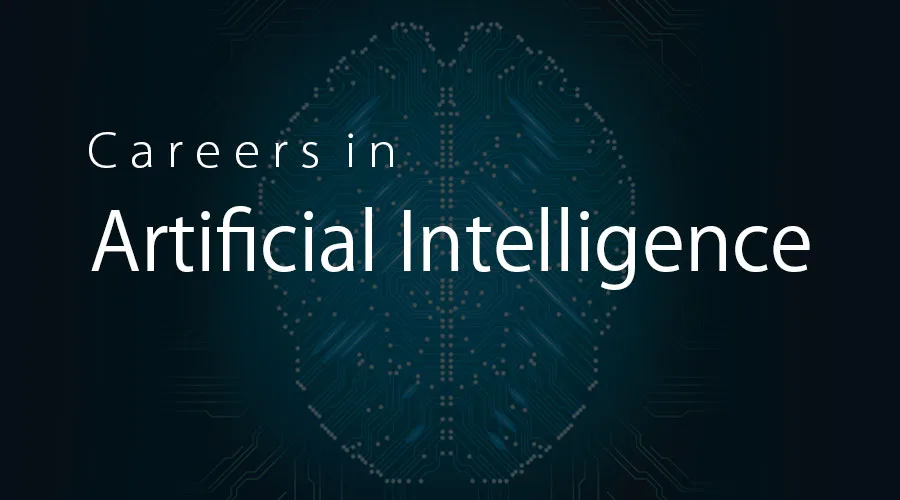Introduction:
Embarking on a career in artificial intelligence opens doors to innovation, challenges, and endless possibilities. In this comprehensive guide, we delve into the intricacies of how to make a career in artificial intelligence. From foundational skills to advanced strategies, this article is your roadmap to success in the AI realm.
Thank you for reading this post, don't forget to subscribe!Understanding the Landscape
Embarking on a journey in AI starts with understanding its vast landscape. Dive into machine learning, deep learning, and natural language processing to grasp the fundamentals that will shape your career.
Nurturing Educational Foundations
Building a solid educational foundation is critical. Explore reputable academic programs, online courses, and certifications. These educational milestones will equip you with the knowledge necessary to thrive in the competitive AI industry.
Mastering Core Skills
In the fast-paced world of AI, mastering core skills is non-negotiable. Develop proficiency in programming languages like Python, acquire statistical and mathematical prowess, and familiarize yourself with AI frameworks to stand out.
Gaining Practical Experience
Theory alone won’t suffice. Gain hands-on experience through internships, projects, and collaborations. Real-world applications of AI concepts will enhance your skill set and boost your credibility in the industry.
Crafting a Stellar Portfolio
Your portfolio is your digital footprint. Showcase your projects, achievements, and the impact of your work. A well-crafted portfolio is a compelling testament to your abilities and can significantly influence potential employers.
Networking in the AI Community
Building connections in the AI community is invaluable. Attend conferences, join online forums, and engage with professionals in the field. Networking opens doors to mentorship, collaboration, and job opportunities.
Specializing in AI Domains
AI is a multifaceted field. Specialize in domains like computer vision, natural language processing, or robotics. Tailoring your expertise will make you a sought-after professional in niche areas of AI.
Exploring Career Paths
AI offers diverse career paths. As a data scientist or AI researcher, understanding the nuances of each career path helps you align your goals with the right trajectory.
Staying Updated with Industry Trends
The AI landscape is evolving rapidly. Breakthroughs. Continuous learning is essential for remaining relevant and competitive in the ever-changing field of artificial intelligence.
Balancing Technical and Soft Skills
While technical skills are paramount, don’t overlook the importance of soft skills. Effective communication, problem-solving, and adaptability enhance your professional profile, making you a well-rounded AI expert.
Navigating Challenges in AI Careers
Every career path has its challenges. Explore common hurdles in AI careers and discover strategies to overcome them. From imposter syndrome to project setbacks, resilience is critical to navigating the complexities of an AI career.
Mentorship: A Guiding Light
Seeking mentorship can significantly accelerate your career growth. Learn from experienced professionals, gain insights into the industry, and receive guidance on overcoming challenges unique to artificial intelligence.
Diverse Perspectives in AI
Embrace diversity in AI. Explore the experiences and perspectives of individuals from different backgrounds. Diversity fosters innovation, creativity, and a richer tapestry within the AI community.
How to Make a Career in Artificial Intelligence: A Deeper Dive
Embracing Lifelong Learning
The journey doesn’t end with a degree or a job. Embrace lifelong learning and continuously upskilling to stay ahead in the dynamic world of AI.
FAQs
How long does it take to establish a career in AI?
Embarking on an AI career varies for each individual. With a solid educational foundation and practical experience, some professionals enter the field within a year. However, the timeline can be extended based on the complexity of chosen specializations.
Are there entry-level positions in AI?
Yes, entry-level positions exist in AI, such as AI/ML engineer, data analyst, or research assistant. These roles provide a stepping stone for beginners to gain hands-on experience and gradually progress in their AI careers.
What industries demand AI professionals the most?
AI professionals are in high demand across various industries, including healthcare, finance, automotive, and technology. The versatility of AI skills allows professionals to find opportunities in sectors undergoing digital transformation.
Can I pursue a career in AI without a formal degree?
While a formal degree provides a strong foundation, it’s not the only path. Building a robust portfolio, gaining practical experience, and showcasing your skills through projects can open doors to an AI career without a traditional degree.
How important is networking in the AI industry?
Networking is crucial in the AI industry. Building connections with professionals, attending conferences, and participating in online forums enhances your knowledge and opens doors to job opportunities, mentorship, and collaborations.
What challenges do AI professionals commonly face?
AI professionals may face challenges like keeping up with rapid technological advancements, overcoming imposter syndrome, and handling project setbacks. Resilience, continuous learning, and seeking mentorship are vital strategies to navigate these challenges.
Conclusion:
Embarking on a career in artificial intelligence is an exciting journey filled with challenges and opportunities. By following this comprehensive guide, you’re equipped with the knowledge and strategies to successfully navigate the dynamic landscape of AI. Whether you’re just starting or looking to advance, the world of artificial intelligence awaits your exploration.
the post may you like:











